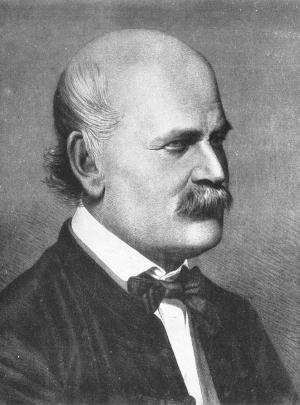Emotion governs truth: New perception of politics based on Semmelweis's dispute about hygiene

Emotions frame the establishment of "truth". This is the central hypothesis of a new project supported by the FWF. The object of the study is a dispute about hygiene during childbirth, which took place in the middle of the 19th century between Viennese gynaecologist Ignaz Semmelweis and his colleagues. While his views were considered to be very questionable at the time, they are now deemed to be standard practice in every hospital. An evaluation of current and historic literature will now show how discourses on establishing this "truth" were informed by emotions. The aim of the project is to develop a new theory on the poststructuralist perspective of politics.
Truth is created by what is articulated. This is a key tenet of discourse theory. It is based on the view that people generate meaning through their actions, words and communication that in turn create certain perceptions. These are based on power structures and interests, which themselves are partly created through discourses. Previous analyses paid little attention to how emotions affect such discourses and consequently the establishment of truths. That is exactly what the Austrian Science Fund FWF project is now going to do.
Negotiating truth
Dr. Anna Durnová is a coordinator of the project at the Institute for Political Science at the University of Vienna. She says: "I believe that truth is a construct, whose establishment is governed by both discourse and emotion. The reason for this is a type of relationship of negotiation between these two levels. I intend to analyse this using a historically well documented case study – the dispute concerning hand washing as a hygienic measure in Vienna in the middle of the 19th century." For Dr. Durnová, this conflict shows exactly how the interaction of emotions and discourses led to the manifestation of values and beliefs, which only later resulted in the consolidation of the positions of individual groups.
The Vienna-based gynaecologist Ignaz Philipp Semmelweis (1818–1865) was at the heart of the dispute. His observation that the disinfection of doctors' hands led to a significant reduction in childbed fever (puerperal sepsis) was not only met with a lack of understanding, but also with strong opposition. At a time when pathogens such as bacteria and viruses had not yet been discovered, there was no scientific explanation for his observations. At the same time, however, his thesis placed part of the blame for the high mortality rate associated with childbed fever on the respected doctors – even if they acted according to their best abilities and knowledge. A science-based discourse thus descended rapidly into a fierce exchange of views. The following excerpt from a letter sent by Semmelweis to the then-Professor of Obstetrics at the k. k. Josephs-Academie in Vienna underlines the intensity of the discourse: "I have no other means of stopping the slaughter other than relentlessly exposing my opponents, and nobody who has their heart in the right place will blame me for resorting to these means."
From dispute to daily routine
Despite deeply entrenched positions, the practice of hand washing was soon adopted in day-to-day medical care and is now an absolute minimum standard. Knowledge about the effectiveness of this practice is now also deemed as "truth". Using historical sources, Dr. Durnová is examining the steps that led to this acceptance and the role that emotions played in the debate. These sources include Semmelweis's work records, his correspondence with friends and foes, and historical research documents on his personal life and his career. Historical and current papers on childbed fever, hand washing and midwifery are also subjected to analysis. The objective of this empirical section of the analysis is to identify emotions linked to the convictions and values expressed at the time.
According to Dr. Durnová: "Emotions transform discourses and thus influence the outcome of these discourses. Current political theories about truth do not account for this. I want to use this FWF project to create a new concept of politics that takes this component into consideration. This concept is based on the understanding that the relationship between discourse and emotion must be seen as negotiation."
Provided by Austrian Science Fund (FWF)

















